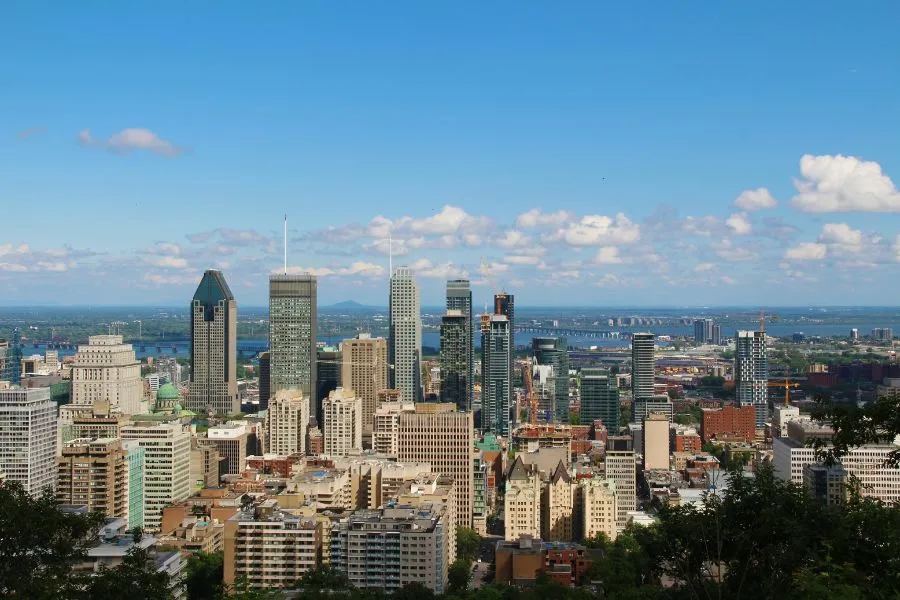For many young travelers, the idea of funding a European adventure while gaining international work experience is nothing short of ideal. Austria’s Working Holiday Visa makes that dream surprisingly attainable—especially in 2025. With stunning alpine towns, world-class coffee culture, and a demand for seasonal workers, Austria isn’t just for tourists or skiers anymore. It’s now an increasingly popular stop for working holidaymakers ready to earn, explore, and engage.
Key Takeaways
Let’s break down everything you need to know about getting and making the most of Austria’s Working Holiday Visa this year.
What Is Austria’s Working Holiday Visa and Who Is It For?
Austria’s Working Holiday Visa (officially a Type D visa) is designed to allow young citizens from specific countries to stay in Austria for an extended period while funding their travels through short-term work. It’s not a work permit in the traditional sense but rather a flexible arrangement that blends tourism with the opportunity to gain light employment.
Austria currently has bilateral working holiday agreements with countries like Australia, New Zealand, Canada, Argentina, Japan, South Korea, Chile, Taiwan, Hong Kong, Israel, and the USA. Each agreement has its conditions regarding length of stay and application caps, but the core purpose remains the same: cultural exchange supported by temporary work.
What Are the Basic Eligibility Requirements?
Not everyone gets a golden ticket to Austria under this scheme—there are specific eligibility criteria to keep in mind.
Most importantly, you must be between 18 and 30 years old, though for Canada and New Zealand, the age cap extends to 35. You’ll need to hold a valid passport from a participating country, with at least several months of validity remaining beyond your intended stay.
Other requirements include:
- No dependents can accompany you.
- You must be traveling primarily for holiday purposes, not to take up full-time employment.
- You must not have previously participated in Austria’s Working Holiday program under your nationality.
- Health and character conditions apply, meaning you’ll need to be free of serious criminal convictions and in reasonably good health.

What Documents Do You Need to Apply in 2025?
Austria’s working holiday visa isn’t overly bureaucratic, but it still requires a clean and complete application. The following documents are typically expected in 2025:
- Completed visa application form (Type D)
- Valid passport (plus copies of relevant pages)
- Passport-sized photographs (as per biometric specifications)
- Proof of sufficient funds – at least €2,000–€3,000, depending on expected expenses
- Proof of return flight ticket or finances to buy one
- Travel/health insurance covering a minimum of €30,000 for accidents, illness, and repatriation
- Accommodation proof for the first few weeks of stay
- Clean criminal background check
- Possibly a motivation letter explaining your travel and work intentions
All documents must typically be translated into German or English, and notarized copies may be requested.
Do You Need a Job Offer Before Arriving in Austria?
No, a job offer is not required before arriving in Austria. That’s one of the key freedoms of the Working Holiday Visa—it allows you to find work once you’re in the country. That said, securing employment early can give you peace of mind, and some employers in sectors like hospitality, farming, or au pair services may even help with the paperwork once you’re on the ground.
For certain types of employment, particularly in sectors like tourism or agriculture, your employer may need to obtain an exception certificate (Ausnahmebestätigung) from Austria’s regional AMS office. This confirms that the job is compatible with your visa terms and that no separate work permit is required.
How Long Can You Stay and Work in Austria?
The duration of stay depends on your nationality, but typically ranges from six to twelve months. For example:
- Australians and New Zealanders can usually stay up to 12 months.
- Canadians also receive 12 months, thanks to their extended age eligibility.
- For others like Taiwan, South Korea, and Japan, durations may be 6 or 9 months, depending on the agreement.
There are no strict limits on how many hours you can work, but the spirit of the program is “holiday first, work second.” So, full-time or long-term contracts are generally not the norm. Jobs in cafés, ski resorts, summer events, or vineyards are quite common—and perfectly legal under the visa’s flexible work permissions.
What Is the Application Process Like?
You cannot apply online; instead, you’ll need to apply through the Austrian embassy, consulate, or a VFS Global visa center in your country of residence.
Here’s a quick rundown of the process:
- Check your eligibility and gather required documents.
- Book an appointment with the Austrian embassy or the VFS center.
- Submit your application in person (no postal applications allowed).
- Pay the visa fee (typically around €150).
- Wait 10–15 business days for processing (though it may take longer during busy periods).
Also Read: What Are the Financial Rules for Sponsoring a Spouse in Australia?
Applications should be submitted no earlier than three months before your intended travel date and no later than three weeks before your intended travel date.
Is the Working Holiday Experience in Austria Worth It?
Absolutely—if you’re after more than just a tourist stamp in your passport. Austria offers a unique combination of natural beauty, urban culture, seasonal work options, and access to central Europe. Whether you’re hiking the Tyrol in summer or serving glühwein in a Christmas market, you’ll get hands-on cultural immersion and life experience that a tourist never would.
Financially, things can be tight depending on your lifestyle—Vienna isn’t cheap—but if you’re frugal and find part-time work early, you can comfortably cover your costs. The working holiday isn’t meant to make you rich, but it can keep you afloat while you explore Europe from a gorgeous, safe, and centrally located base.
Conclusion
Austria’s Working Holiday Visa is one of those rare opportunities where government paperwork leads to personal freedom. For eligible young adventurers in 2025, it’s a ticket to one of Europe’s most underrated experiences—one that combines the Alps, schnitzel, and seasonal work into a year you’ll likely never forget. Just remember: get your documents in order, arrive with some funds, and pack both your hiking boots and your resume. Austria is ready when you are.
Reference: https://malekpour.global/work-in-austria





